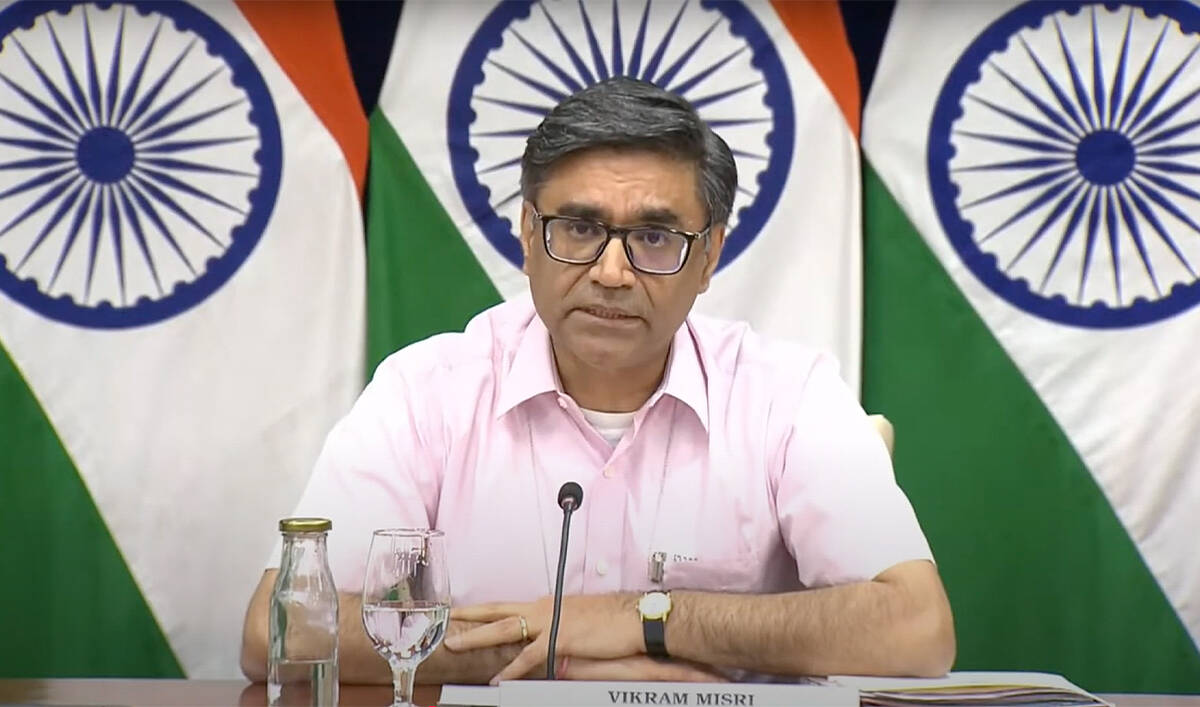KARACHI: Karachi residents continued to suffer the sweltering heat on Wednesday, with doctors and emergency responders advising citizens to exercise caution by staying hydrated and avoid venturing out unnecessarily.
An intense heatwave gripped Pakistan’s southern Sindh province this week, particularly its commercial capital of Karachi. The temperature in Karachi soared to 41 degrees Celsius on Monday while it declined to 39 degrees Celsius on Tuesday and 38.6 degrees Celsius on Wednesday.
Pakistan ranks among the top ten nations most vulnerable to climate change, grappling with increasingly frequent extreme weather events— from deadly heatwaves to devastating floods. The 2015 heatwave claimed over 2,000 lives in Karachi alone, and the 2022 floods left more than 1,700 dead and over 33 million displaced nationwide.
“I’ve already drunk water from three or four places, but still the heat is so overwhelming that it’s hard to make sense of things,” Ejaz Ahmed, a rickshaw driver, told Arab News while stopping at a roadside stall offering water.
“In Karachi, the pollution is very high— there’s smoke, there’s pollution.”
Traffic constable Nadir Ali has to perform his duties while the harsh rays of the sun beat down on Karachi. Ali said the unbearable heat makes it difficult for him to perform his job.
“We are standing here at Kharadar Chowk on the road and the heat is intense,” Ali told Arab News. “The heat is very strong and we are covering our heads while carrying out our duties.”
However, according to Meteorologist Anjum Zaigham, there is some relief in sight for Karachi residents as the temperature is expected to decline slightly starting Thursday.
“Starting tomorrow, we expect a slight decrease— temperatures should hover between 36 and 38 degrees,” he told Arab News.
“Sea breezes will continue which will lead to higher humidity levels by evening. As a result, the perceived heat will feel two to three degrees higher than the actual temperature,” Zaigham added.
Experts say rising temperatures are linked to climate change, putting vulnerable populations at risk. Muhammad Amin, who oversees operations at a heatwave camp set up by the Edhi Foundation, said the organization has instructed its drivers to carry cold drinking water and keep damp cloth with them to cover their heads with.
“It’s extremely hot in Karachi. In response, this small setup has been arranged: if people troubled by the heat come here, water is poured over their heads, and they are advised to keep a cloth on their heads afterward,” Amin said.
“So far, there have been no reports of deaths caused by the heat,” Amin said, crediting growing public awareness for it.
“Awareness has increased significantly— people now have more information about how to deal with the heat.”
Doctors, meanwhile, urge citizens to exercise caution amid the heatwave.
“Do not go outside unnecessarily, especially between 10 am to 12 or 1 pm,” Dr. Akash Kumar, a doctor at the Jinnah Postgraduate Medical Center (JPMC), which is Sindh’s largest health facility, said.
“If your work involves being out in the heat, try to wear a cap. If you cannot wear a cap, then at least try to stay out of direct sunlight,” he added.
He urged people to drink plenty of water and wear light and loose clothing.
“Please try to avoid going outside unnecessarily during these days when the risk of heat stroke is high,” he said.
Residents struggle to cope as heatwave grips southern Pakistan
https://arab.news/jhqpg
Residents struggle to cope as heatwave grips southern Pakistan

- Temperature in southern port city of Karachi surged to 41 degrees Celsius this week
- Pakistan Meteorological Department says mercury will start to decline from Thursday

















